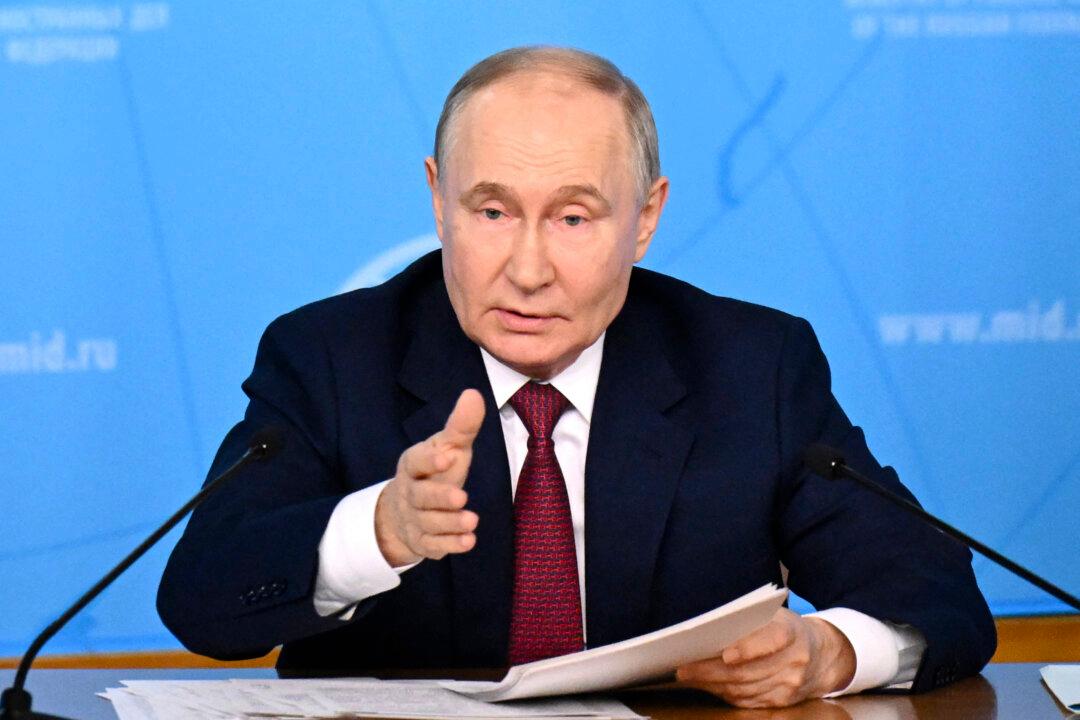Russian President Vladimir Putin has said he would agree to a cease-fire with Ukraine if the embattled nation surrendered its occupied territories to Russia.
Mr. Putin promised on June 14 to “immediately” order a cease-fire with Ukraine and begin peace negotiations if Kyiv agreed to withdraw all troops from the four regions annexed by Moscow in 2022 and renounced any plans to join NATO.




